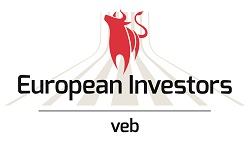13 May 2016 – Investment funds that charge high costs but make little effort to beat the benchmark. In the Netherlands, presumably 8% of all managed equity funds are index huggers, the Dutch financial markets authority concludes on the basis of its exploratory research. And the Dutch regulator is not the first one to draw such conclusions.
The costs charged by Dutch fund managers are not always in line with the degree of active management. This is the conclusion of a research performed by the AFM on the practice of index hugging. An index hugger, also known as ‘closet tracker’, is a fund that presents itself as being active but in practice (closely) follows a certain benchmark.
Research by the AFM shows that of the 85 equity funds that are registered in the Netherlands, the investment portfolio of seven (or 8%) funds did not deviate significantly from the benchmark the manager tries to beat. Such funds are potential index huggers.
VEB research
AFM performed its research following signals from the market, research by consumer organisations and research conducted by other regulators in Europe.
The Dutch Investors’ Association VEB, founding member of European Investors, also recently performed research on the so-called active share of Dutch equity funds. The results were published in September 2015. The active share is an important measure for the degree of active management. In simple terms, the active share is the share of the fund portfolio that deviates from the composition of the benchmark that the fund aims to beat.
VEB concluded that indeed many managers of active equity funds are not worth their price. Investors pay annual ongoing charges of 0,5-1,0% per year and in some cases get little in return since managers merely track a certain benchmark.
In order for a manager to beat a benchmark, it is necessary to depart from that benchmark and that does not happen or too little. In such a case, it is better for an investor to invest his or her money in a passive fund with annual ongoing charges of for example 0,3%.
Next steps
In its report, the AFM makes a number of recommendations that European Investors fully supports. For example, the regulators urges fund managers to bring the costs more in line with the degree of active management, to adjust their investment policy if necessary and to disclose relevant information, such as the active share, to investors.
However, the AFM is not willing to disclose the names of the funds that have been marked as potential index huggers. This means investors will be left in limbo. European Investors and VEB regret this and will therefore try to mimic the research performed by regulator to find out which funds are concerned to ensure investors will know and can adapt their investment decisions.
Also, European Investors and VEB will continue to fight index hugging on European level. At the beginning of this year, ESMA, the European financial watchdog, concluded that 15% of the funds in the EU are potential index huggers.
